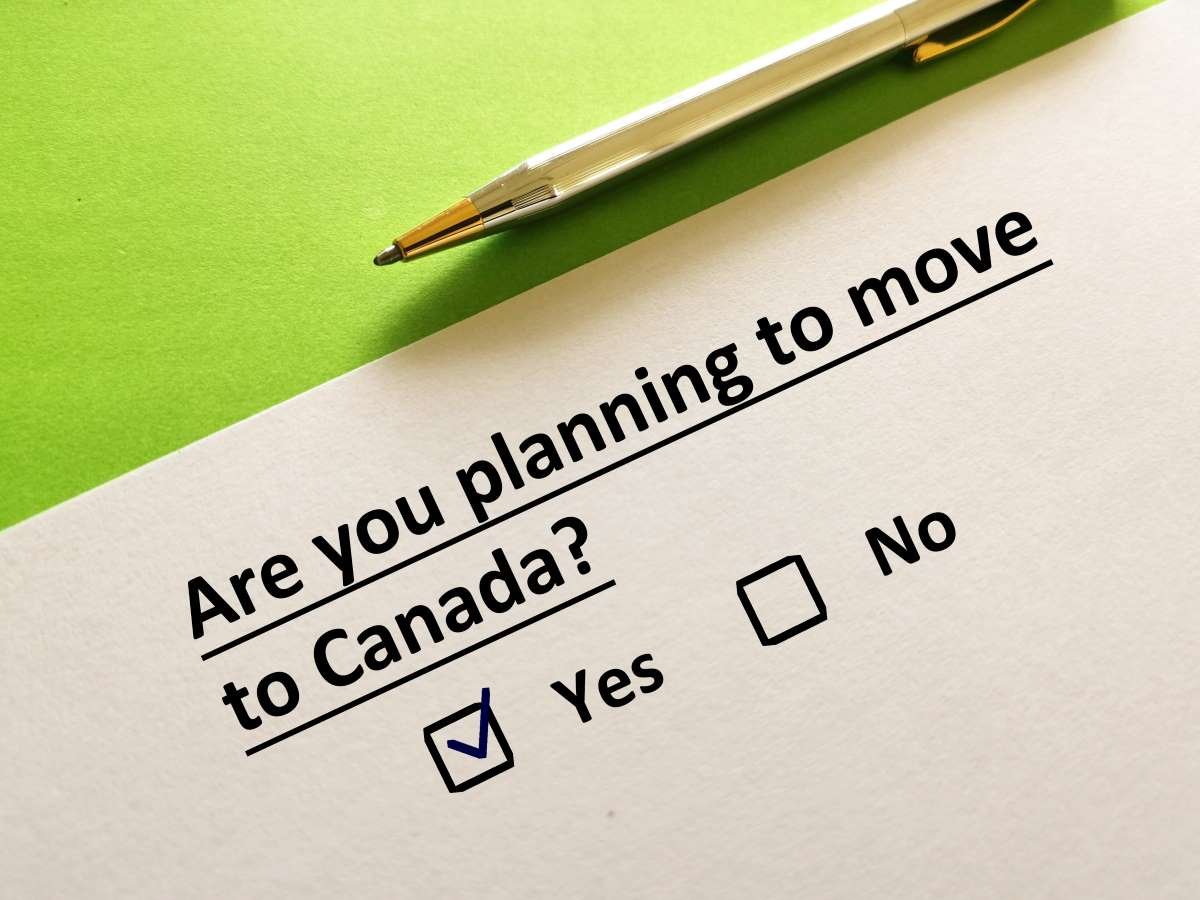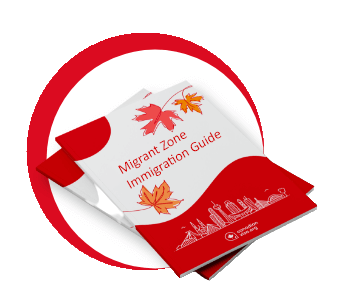You have come to the right place if you want to know more about the Federal Skilled Worker Program (FSWP). With over 100 visas and immigration programs to choose from, the Canadian government has ensured that nobody has been left out. Look closer at the Express Entry system and the Federal Skilled Worker Program.
What Exactly is Express Entry?
Since the Federal Skilled Worker Program falls directly under the Express Entry system, we will look closely at the Express Entry. In short, Express Entry is an online points-driven system popular for yielding quick immigration results. The system comprises three immigration programs under one Express Entry umbrella. These programs are as follows:
- 1. Canadian Experience Class
- 2. Federal Skilled Worker Program
- 3. Federal Skilled Trades Program
Whether an international student or a skilled worker, you can gain permanent residence through the above-mentioned programs. You can find more information and how to create an Express Entry profile here.
Because Express Entry operates a points system, applicants are selected based on their accumulated points in the Express Entry - find out more about how to increase your Comprehensive Ranking Score (CRS) here.
What is the Federal Skilled Worker Program?
The Federal Skilled Worker program is designed for individuals with the qualifications, skills, or work experiences to contribute to the Canadian economy. Applicants applying under the Federal Skilled Worker Program must meet the minimum program requirements. You must have work experience in managerial jobs (skill type 0), professional jobs (skill level A), Canada skilled trades and technical jobs (skill level B) and meet the pass mark (67 points) on a points-based assessment. Successful applicants will obtain Canadian permanent residence to live and work in Canada.
The Program Eligibility Factors
There is a language requirement, professional work experience and educational requirement. Candidates must meet all the requirements to be successful in this program. All skilled trades workers must meet the program criteria; the following selection factors come into play when evaluating your application:
- age
- education
- work experience
- whether you have a valid job offer
- English and/or French language skills
- adaptability (how well you’re likely to settle here)
Note: The above factors form part of a 100-point grid, and individuals will increase their chances of success under this program if they score points in each of the six factors. The current pass mark is 67 points.

How to Qualify for the Federal Skilled Worker Program
To demonstrate the right work experience, you must show that:
- Make sure you are still in the same type of job with the same NOC that you were originally in when you made your immigration application (known as your primary occupation).
- The work experience must be in the last ten years.
- It must be paid work with wages or earned commission—volunteer work or unpaid internships don't count.
- Have at least one year of continuous work or complete 30 hours per week— this can be full-time or part-time.
- For part-time work experience, you must still fulfill 30 hours per week.
- Student work experience gained while studying will fall under minimum requirements if it was paid wages or commission, continuous (without gaps in employment) and meets all other requirements.
You must prove proficiency in English or French as you will be tested in reading, writing, listening and speaking. A minimum Canadian Language Benchmark (CLB) score of seven would be the best in all four abilities. Learn more about the International English Language Testing System (IELTS) test here.
For those who have foreign education, you must graduate with a credential and an Educational Credential Assessment (ECA) for immigration purposes from a designated organization. The ECA will show that your education equals a completed certificate, diploma or degree from a Canadian secondary institution (high school) or a post-secondary institution.
Proof of Funds
You must prove you have sufficient funds to support yourself and your family settling in Canada. However, if you are legally working in Canada and have a valid job offer from an employer in Canada, then this may be sufficient.
Additionally, you must be admissible to Canada - this means that you should be allowed to enter Canada, and the decision will lie with the immigration officer.
Where can I Live in Canada?
Federal skilled workers applying under this program must live outside the province of Quebec, which selects its skilled workers. If you want to live in Quebec, find more information on the Quebec-selected skilled workers here.
However, Provincial Nominees must settle in the province or territory that nominated them.
How to Apply for the Federal Skilled Worker Program (FSWP)
Step 1: Create an Express Entry Profile
If you fulfill the eligibility criteria as mentioned above under the Federal Skilled Worker Program, you must create an Express Entry profile first. All Federal Skilled Workers must provide information about their age, work experience, skills, language ability, education, qualifications, and other personal information as needed. Once your application is confirmed by Immigration Refugees and Citizenship Canada (IRCC), you are placed in a pool of candidates. You are ranked according to the Comprehensive Ranking System.
Step 2: Improve Your Ranking Under the Comprehensive Ranking System (CRS)
Candidates ranked highest are issued an Invitation to Apply (ITA) for Canadian permanent residency when the Government of Canada conducts regular draws from the pool. Therefore, as a candidate, you should improve your score to rank higher, and your chances of receiving an invitation to apply will increase.
Step 3: Get an Invitation to Apply (ITA)
An Invitation to Apply (ITA) is issued to those candidates who have been selected to apply for immigration to Canada by IRCC through its Express Entry selection system.
You have 60 days to submit a complete and accurate application form and all the supporting documents as soon as you receive the invitation. The submission of a complete application is considered acceptance of the invitation sent by IRCC. Once all forms and documents are completed and uploaded, you will receive an Acknowledgement of Receipt (AOR) issued by IRCC, who will further review your application and determine your eligibility for the program.
Step 4: Medical Examination and Security Check
A medical examination is mandatory for all applicants. It includes a standard physical exam, blood tests, urine tests, and X-rays. These are conducted to check if the applicant's medical condition may pose a risk to the citizens of Canada.
So, why do you need an RCIC? Let's dive into this below…

Benefits of Using an RCIC
Here are solid reasons why you should use an RCIC when planning to immigrate.
1. Regulated Canadian Immigration Consultants (RCICs) know Canada's Visa System Very Well
Our RCICs are trained immigration experts, and it's their job to stay updated with the latest policy changes regarding Canadian immigration. These policies can be complicated to navigate by yourself if you're a foreign national. You can be assured that you are working with someone knowledgeable on the matter which will provide you with sound advice.
2. The RCIC can Communicate with the Canadian Immigration Authorities and your Employer on your Behalf
Contacting a governmental department such as an embassy or consulate can be time-consuming and difficult. Working with a Regulated Canadian Immigration Consultant can remove this worry. The RCIC will do this for you and ensure that your application meets the requirements of the Canadian immigration authorities - this will significantly increase your chances of having your application approved.
3. Get a Personalized Immigration Strategy Created for you
The RCICs we work with know the Canadian immigration system extremely well. However, that's not all. They will also tailor the advice based on your needs and circumstances since each individual's needs differ. You can trust your affiliated RCICs to advise you on how to proceed with your application based on your needs and the goals you want to achieve.
4. All your Paperwork is in Good Hands
Submitting all your documents can be a difficult and confusing process. You may also be worried about completing application forms correctly, and our RCIC can guide you through the process. You don't have to worry about being burdened with hours of Paperwork. You can rest assured that your application is in good hands while being assessed by a qualified consultant. Of course, the final decision still lies with the immigration officer and the Canadian government.
5. Our RCICs can Save you Valuable Time
The process of immigrating is time-consuming, so having someone qualified to help you is highly beneficial. You don't have to be stuck with Paperwork or other lengthy procedures involved in the visa application process. Working with an RCIC takes care of the stressful and time-consuming part of the immigration process.
Permanent Residency for Federal Skilled Workers
It is easier for skilled workers and professionals to become permanent residents in the country because of their education and work experience to assist them in finding work. Many people retire in Canada yearly, meaning the need for skilled workers is growing tremendously. Immigrants are the lifeblood of the Canadian economy; therefore, the Canadian government has made immigration and permanent residency simpler than you think.
Contact our Regulated Canadian Immigration Consultant (RCIC) today for support and guidance!

FAQs
What is the processing time for the Federal Skilled Worker Program?
Over 80% of complete FSWP applications are processed within six months or even less - this is a fairly short amount of time compared to many other Canadian immigration programs.
Can I count student work experience toward the Express Entry work requirement?
Student work experience gained while you were studying in Canada or abroad counts towards the minimum requirements for the Federal Skilled Worker Program if the work:
- was paid by wages or commissions;
- was continuous (no gaps in employment), and;
- meets all the other requirements of the program.
Six factors are considered under the Federal Skilled Worker Program points grid. They are:
- Language ability: up to 28 points
- Education: up to 25 points
- Work experience: up to 15 FSW points
- Age: up to 12 FSW points
- Arranged employment: up to FSW ten points
- Adaptability: up to ten points
Does the FSWP have an eligible occupations list?
No, there is currently no separate eligible occupations list. As an applicant, you'll need at least one year of work experience in the past ten years. The occupation needs to fall under Canada's National Occupational Classification (NOC) as skill level A or B or skill type 0.




